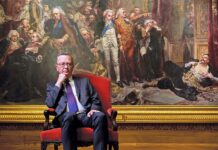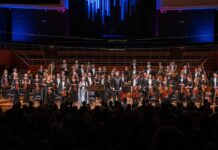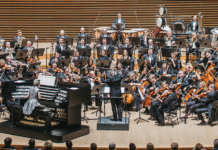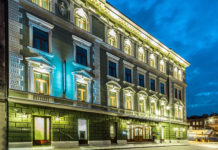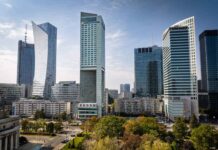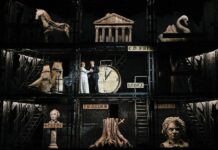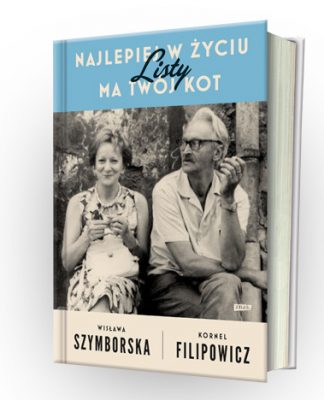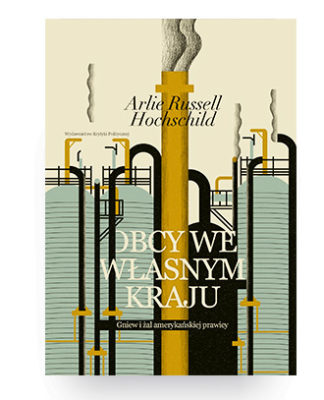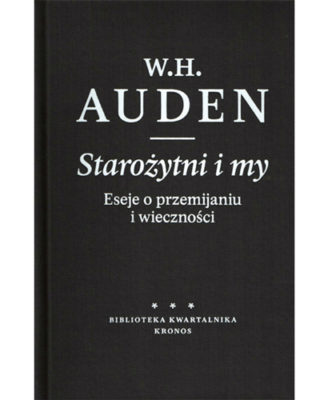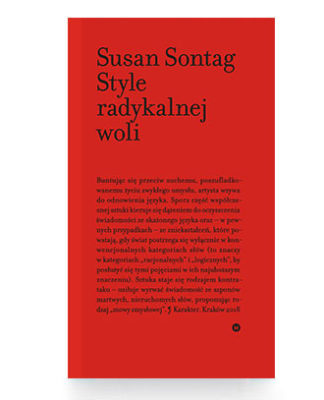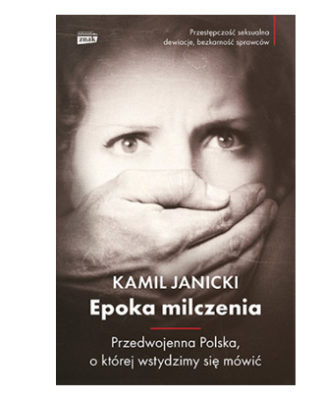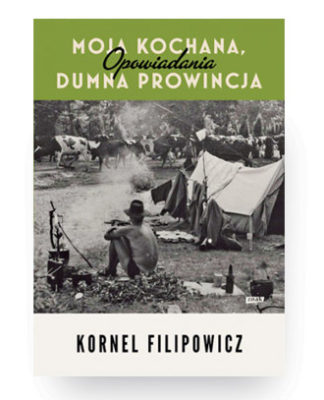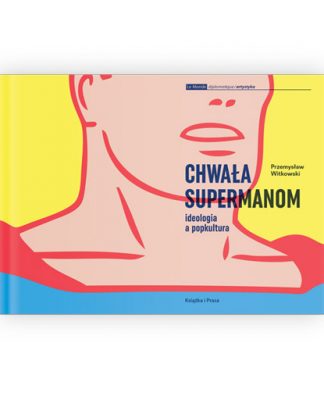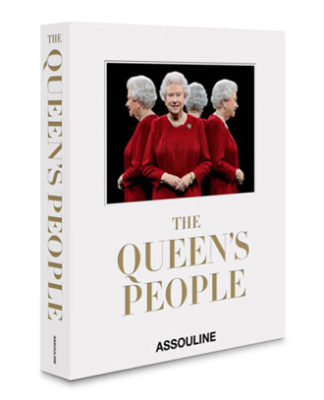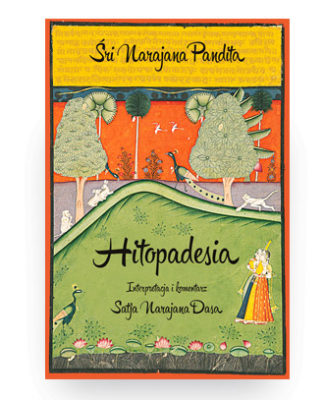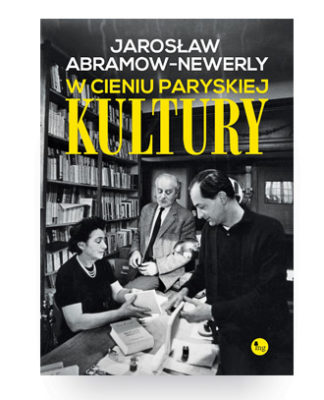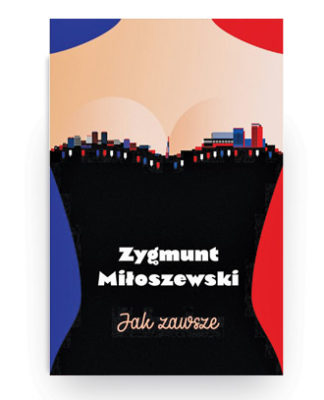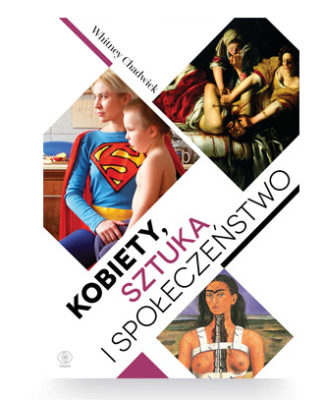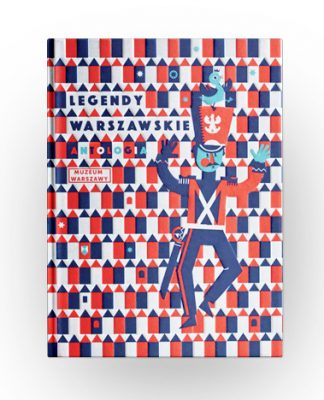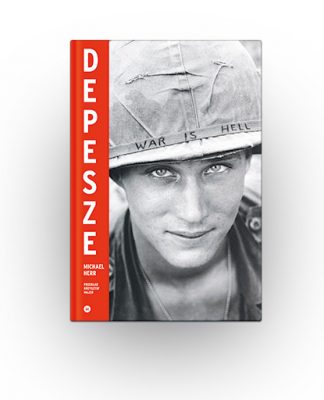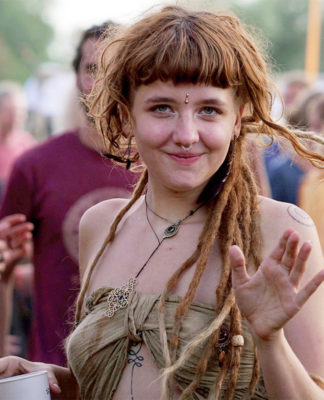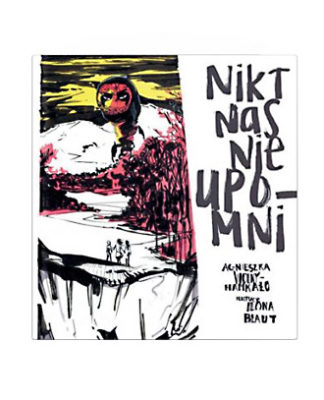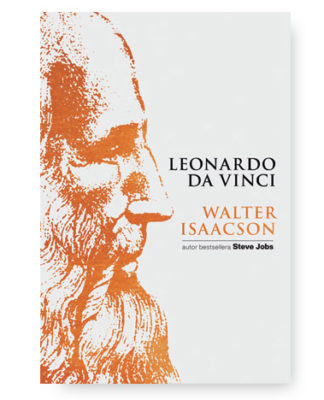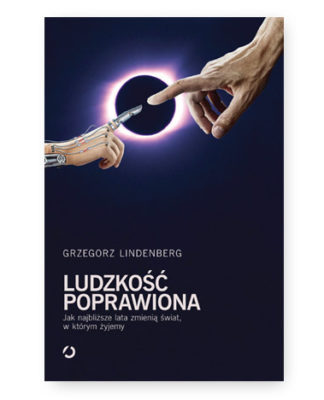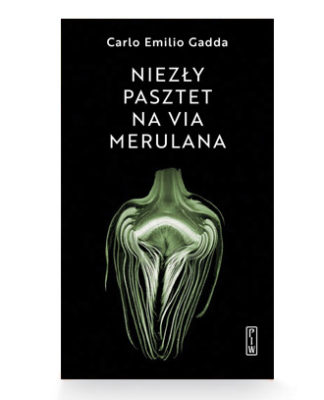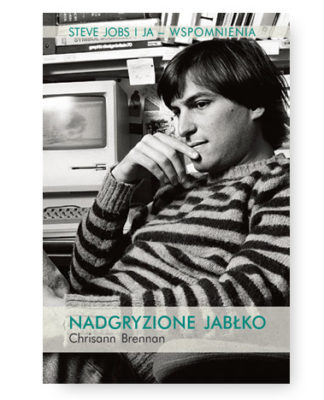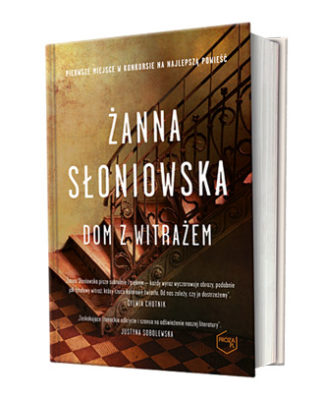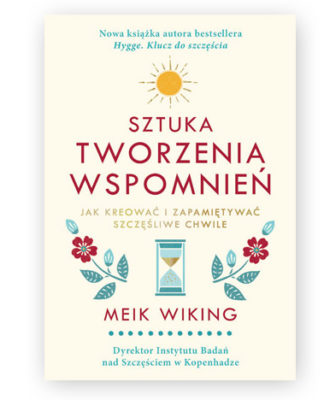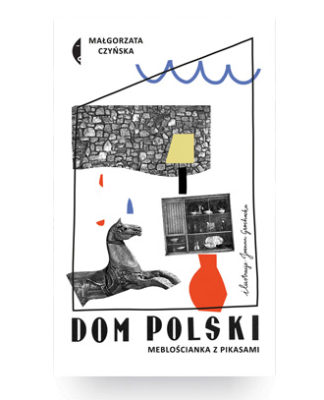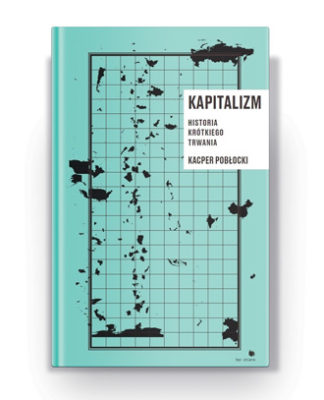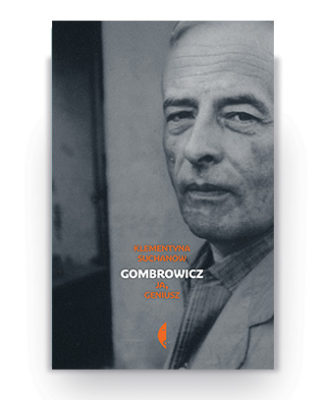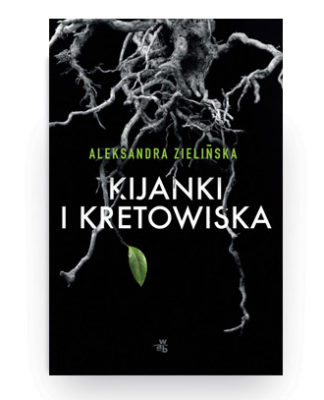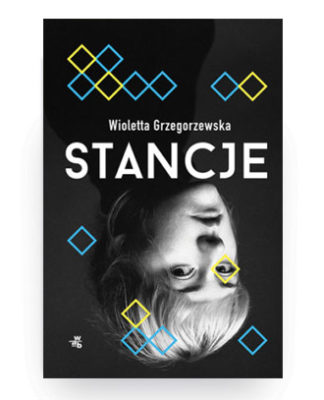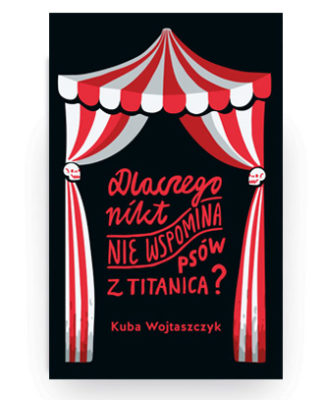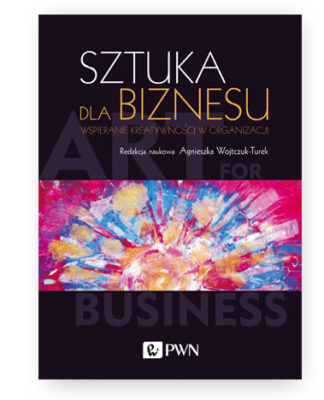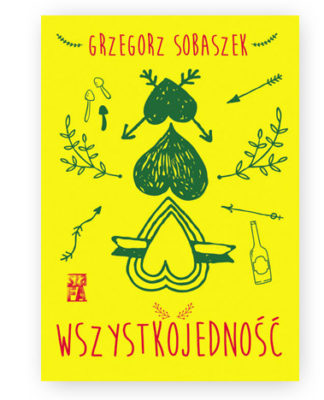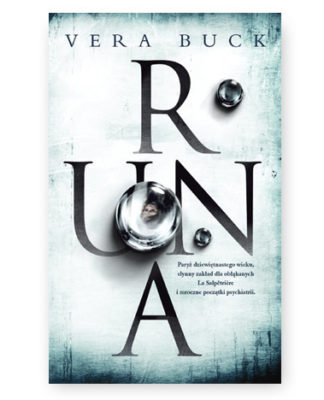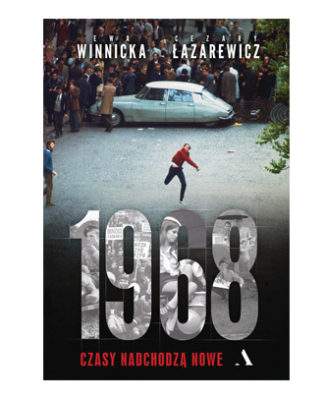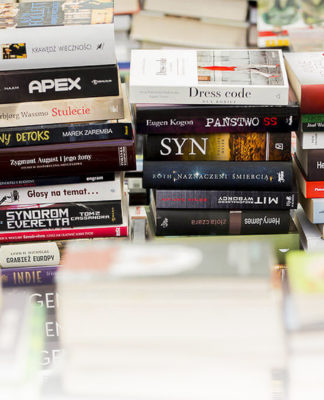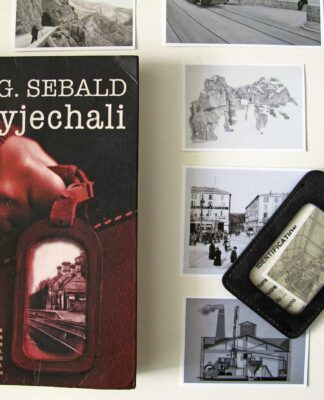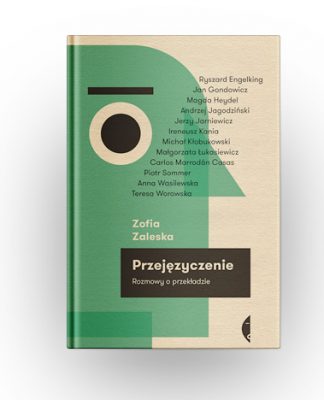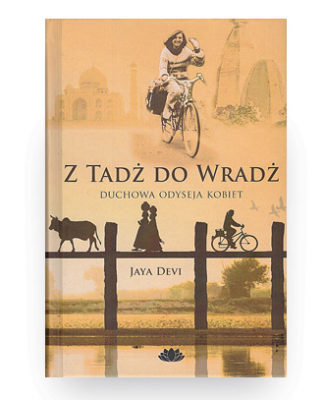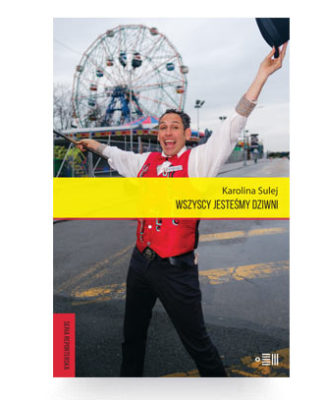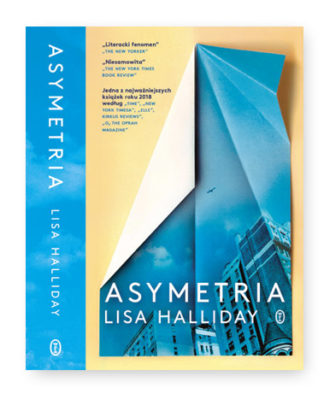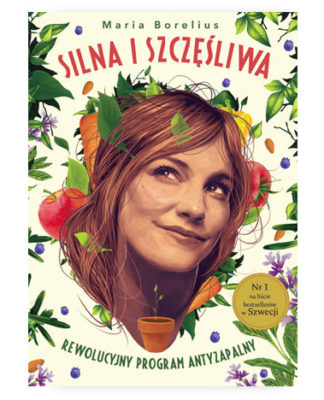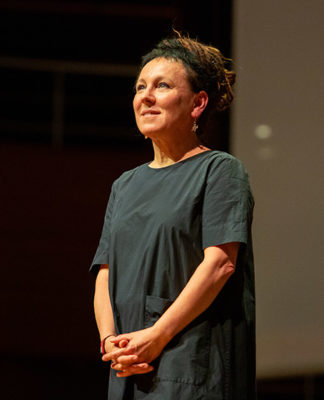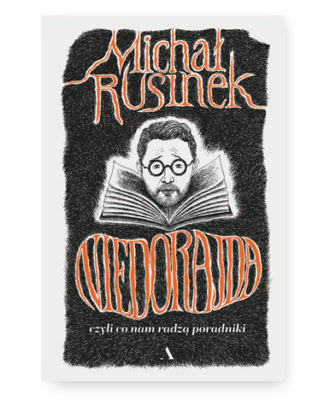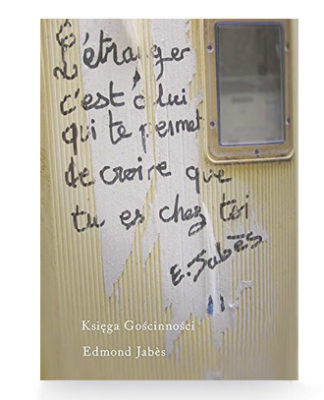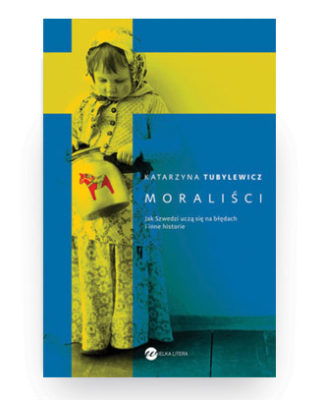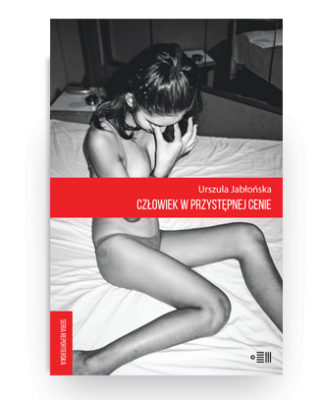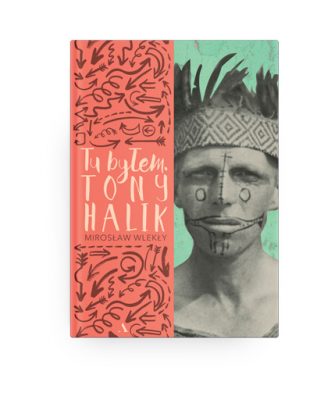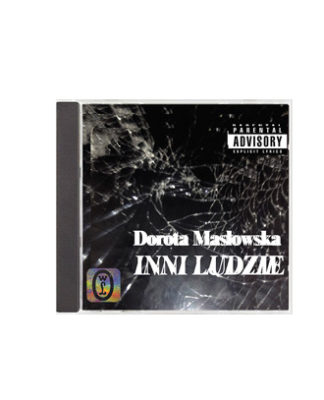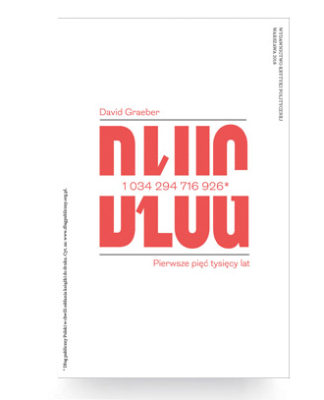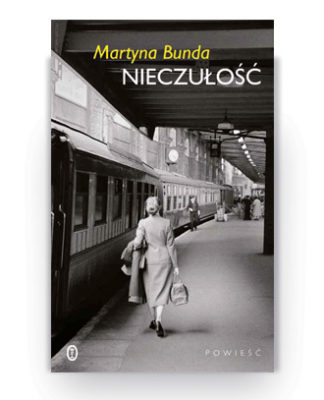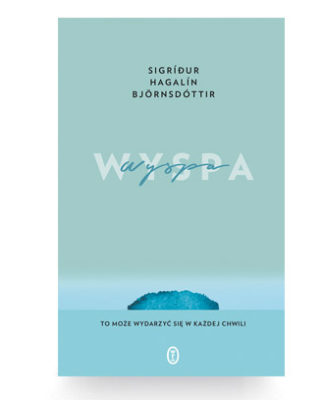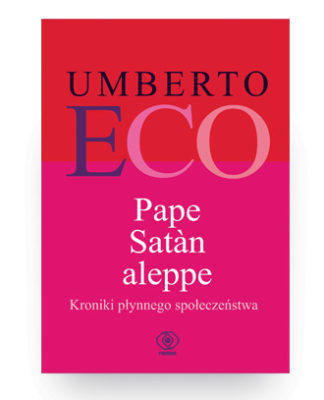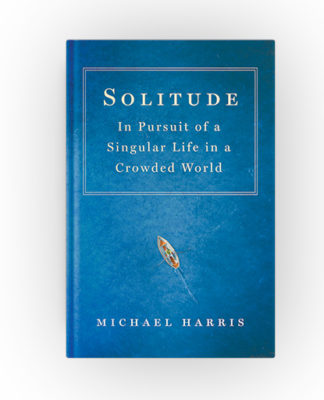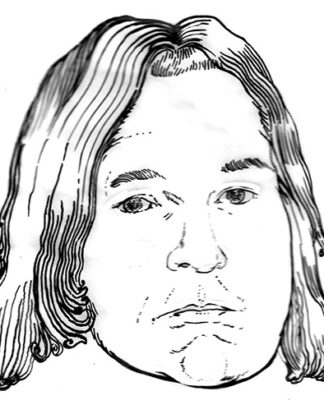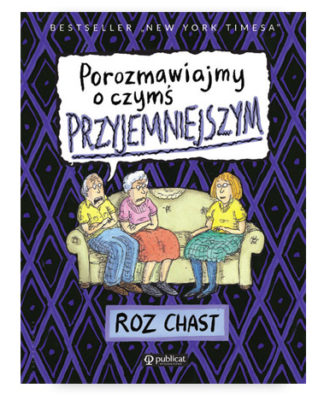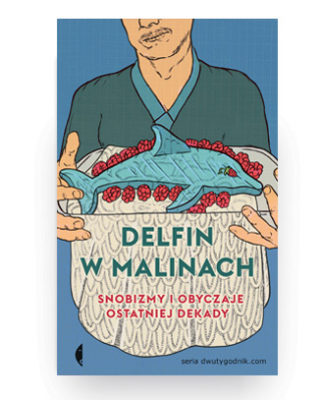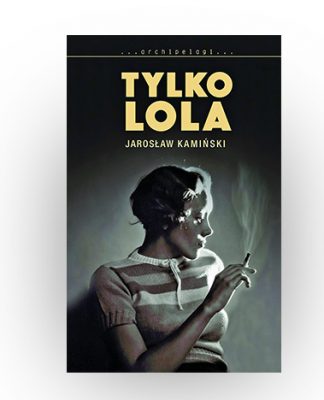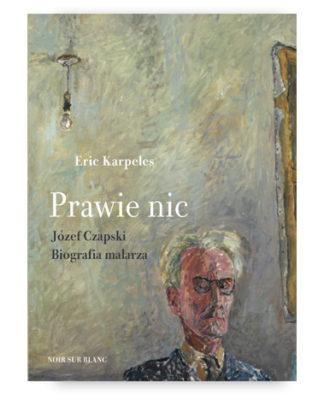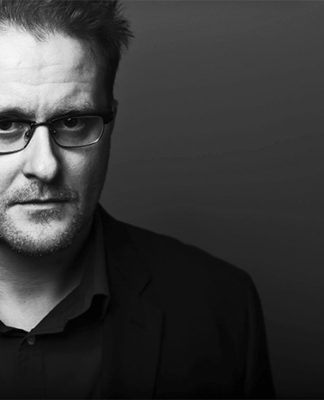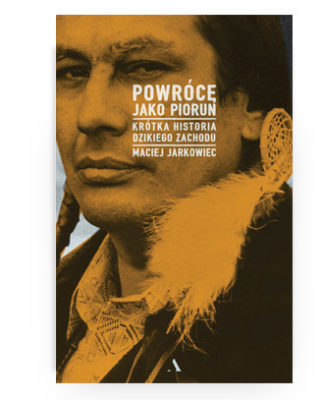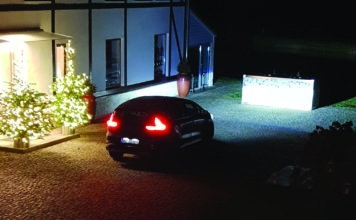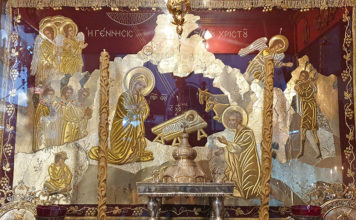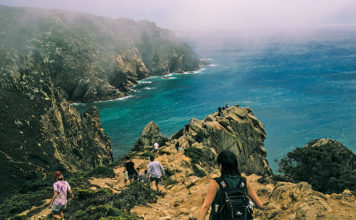He has played over 90 roles, many of which are the stuff of film and theatre legend. At the same time, he has devoted his life to helping others. Now, without any fanfare, Olgierd Łukaszewicz has turned his focus to another, all-encompassing project.
Text: Beata Brzeska
Photos: Weronika Kosińska
You have often said that youth is the foundation of the rest of one’s life. Did you get yours from your intellectual, middle-class family?
Hmm, a family is something we often take for granted – a natural environment – and one can be forgiven for thinking the whole world reflects it. It was only years later, while collecting materials for my book Sexmission and Other Missions, that I formed a better understanding of the world around me. I regret missing out on the opportunity to discuss important matters with my father, who survived not only the revolution but two wars as well. However, we weren’t a very patriotic family or part of the underground, even though we did visit the graves and lit candles for the scouts and Silesian insurgents in Katowice every year. To be honest, the foundation you speak of was really developed during my time as a scout.
You were a scout?
Yes. When I was 13, I became a leader in the group and took the boys camping in the woods. We had no idea how to cook and hoped it would somehow be taken care of. I quickly rose up the ranks and, by the time I was 16, I became a scout instructor. I also acted in the Artistic Division of the Katowice Ligota Regiment.

Is that where your passion for social work was born?
My mother liked to tell a story about when my twin brother (ed.: cinematographer Jerzy Łukaszewicz) and I were three or four. Some older boys were playing soccer and I ran off with the ball while my brother hid under our mother’s skirt. Today I tell him, “Nothing’s changed. You still hide behind the camera, while I show off on stage.”
Did you make movies as children?
You could say he let me into his world of movie-making and used me as his actor. I remember the first time I saw myself on a screen. It was on our wall at home… and I’d written the script [laughs]. According to him nothing was right. I remember him saying I was too lanky to be a movie actor.
Didn’t they once have to dig a hole beneath you for a kiss in a love scene?
Yes, in my debut film, Dancing in Hitler’s Headquarters (dir. Jan Batory, 1968)
Let’s come back to what lies behind your desire to help others. You’ve said that you are driven to stand up for what is right, even when there is no real desire to do so on your part.
I’m probably that naïve and idealistic as a result of my time in the scouts. I stood up for the mayor of Hel, who was detained and accused of corruption. My wife and I founded a theatre in Hel, which, incidentally, is still in operation today. I attended the mayor’s trial in front of the Justice Committee at the Ministry of Justice. I think it’s what the residents expected. On another occasion, a farmer near Czarnków told me he was going to have to hand his farm over to the pawnshop and his whole family would have to move out. The court didn’t want to hear about it, because the farmer had signed a contract. I didn’t think that was right, so I found a young lawyer named Artur Nowak, who defended the farmer. Over time, Novak would save forty other families from eviction and these days he’s known for his work on behalf of victims of paedophilia in the church.
From scouting and to acting. They seem worlds apart.
Early youth is a very important stage in life and it’s critical one allows oneself to be guided by what happens when you’re 15 and 16. I remember speaking up when the examination board at theatre school asked one of the examinees why they wanted to be an actor. Do any of us actually ever know? Of course not. We just give in to temptation. It’s a never ending process of self-realization. I was surprised to discover what a big part civic duty was to play in my life. I think I was greatly influenced by my repertoire and what I’ve read. 1968’s Dziady – that’s my credo. Yes, I’d have to say the Polish repertoire shaped who I am – I placed my trust in it and performed it, while drawing on great literature.
 Literature that, while not contemporary itself, still tackles contemporary issues. Is that why you took the actors out of the theatre and onto the streets?
Literature that, while not contemporary itself, still tackles contemporary issues. Is that why you took the actors out of the theatre and onto the streets?
Yes. Dziady cannot be only on stage. It demands a tangible approach that reaches the people [ed.: like a happening]. I could sense how frustrated Mickiewicz must have been when he first wrote it. It all becomes clear when we hear the words: “There are witnesses.” I did the production of Siberia – Last Farewell (2000) with Jurek Kalina. He pushed a cart from the quarries back and forth, while members of the Siberian Association stood on stage. I wrote the script based on the diaries of the exiles. I did the Tent of the Covenant (1999) about Warsaw’s Holocaust survivors and a piece about Krzysztof Kamil Baczyński [ed.: poet and hero of the Warsaw Uprising]. Night of the Pilgrim (2001) was another one I wrote for the unveiling of the monument to Juliusz Słowacki. When I think how much running around and persuading I had to do, so that his poetry was read on that occasion.
What is the role of theatre? Is it a conversation?
I was really impressed by the ethos of the National Theatre and its actors. We were just beginning to find our way with Jerzy Grzegorzewski, after the fire at the theatre. Actors of the National Theatre have a duty to talk to the nation. As the poet says, “We must account for the harm caused in our homeland,” as in the case of the Siberians, which is yet to be settled. Finding the right way to tell this story fuels the imagination. I take plots from what is my soil, my reality. It doesn’t always have to be serious. It can by joyful. Leszek Długosz has been a friend for years and he often invited me to the bar, Piwnica pod Baranami. At first, I was shocked to learn that you could pat our great writers on the back and laugh at them at the same time. Years later, I wrote a nativity play – a pastiche of Fredro and Wyspiański’s Wesele – just like a schoolboy who pokes fun at the older generations of his family. After all, the greats are all one big, happy family.
You’ve worked with some of the greatest artists like Kazimierz Kutz, Zygmunt Hübner and Andrzej Wajda, who were also active and made a difference in public life.
When we did The Danton Case at the Powszechny Theatre (ed.: 1975), Marian Spychalski came backstage with Jan Szydlak (ed.: who were communist activists) and said, “Our revolution isn’t that bloody.” We all waited anxiously to see if the director would be sacked, but he wasn’t. Director Hübner really brought me up through the way he chose and took responsibility for what we put on stage. One Flew Over the Cuckoo’s Nest and the Fall of the Paris Commune were political shows performed under martial law. Theatres were closed and there we were trying to put on Fall of the Paris Commune. We were convinced that Hübner would be kicked out straight away for that. He took a lot of risks and I learnt from him what role theatre plays in public life.

Is art still a dialogue?
It can be and still is, in very special cases of course. For example, Krystian Lupa displays a new humanism and, similarly, Warlikowski has introduced a new sensitivity. And remember that this new perspective goes against the Catholic way of seeing the world – suffering, self-denial, the notion of man as the pinnacle of existence. This biblical megalomania clashes with responsibility for the community. Such discussions never occurred in the theatre of the past. It was suppressed.
In reflecting reality, are theatre and film breaking further boundaries?
I have to chuckle when I watch commercials, because these days no physiology is taboo. Is that wrong? I think it’s good. There have been so many lies, falsehoods, and a notion of sin – all to the detriment of mankind. Above all, the one constant must be to devote oneself to another. Extremely interesting films are being made. They penetrate areas of sensitivity that many directors previously thought of as too personal and intimate. They were concerned with literature, even when they were writing their own texts. Recently I realized what a wonderful role Wojciech Smarzowski plays. He presents such brutally important matters before your eyes, from the guts of Polish conscience, experience, megalomania and gibberish.
You’ve worked with the greatest directors and really started out at the top. As a very young boy, you acted for Kutz and Wajda in some important and significant films. Has that shaped your perception of acting?
I was very lucky to meet such great individuals. Performing with a Silesian dialect for Kutz felt like playing in my backyard at home. That ghastly stagefright, which you are taught to shake out through your feet, left or right, simply disappeared when you were working with Kutz. They warned me that he could be abrasive and swore like a cobbler, but I found him to be tender and sensitive, though obviously tough in a manly way. “Olo,” he said, “Are you good to go? Are you ready? Action!” He was open to playing around, but always within the framework he’d conceived. And he always had everything worked out – geometrically, mathematically, frame by frame. Wajda was different. He would wait for the actor’s impulse. “Just perform. Show me something. I’ll know how to capture the image,” he’d say. Experiencing that freedom, that emotional bond at work, and that focus were unforgettable and wonderful experiences.

Doesn’t that also help you get into the role?
I have friends who can fool around and a moment later they’re in character. I’ve never been able to do that and I still can’t. The older I get, the more I regret the way a role occupies my life. I lose myself in everything I associate with it, and the atmosphere. I heard that when he was filming Schindler’s List, Ben Kingsley remained in character from the moment he entered makeup in the morning until the evening. That convinced me to be myself, while not shying away from embracing a role. I want the image to be clearly defined, the emotion to be marked, and the words to resonate. I learnt about colour too late. Marian Nowicki taught me that at the theatre in Cracow. “Colour, colour,” he used to say. Grzegorzewski was bored with text. He preferred the essence. That, in turn, taught me how important form is when creating a role, even in the smallest frame.
Do you remember all your roles in the same way?
I was very caught up in the role of Lieutenant Kikeritz in Lesson in a Dead Language, directed by Janusz Majewski. I made a few creative assumptions that worked out. Agnieszka Holland told me that it was my “most ironed out” role, and Andrzej Łapicki considered it the best of my career. Acting is experimenting with yourself, as was the case in the Ryszard Bugajski film Generał Nil (2009) about General Emil August Fieldorf, whose pseudonym was “Nil”. You had to know how to find an emotion and then bury it inside, all the while trusting it would read on the camera and trigger a response. And it worked. (ed.: For this role, Olgierd Łukaszewicz received the Golden Reel Award for best actor at the Tiburon International Film Festival.)
Is it hard to bring a historical figure to life through a contemporary lens?
Thank God I wasn’t aware that General Fieldorf’s daughter was still alive. I built the character by drawing upon passages I’d circled in his biography, but I built it my way. Grzegorzewski taught me to do that when we were working on Tadeusz Różewicz’s Trap. I was afraid my character was too glum, so he showed me a picture of Kafka – the final one in which he has such sad, vacant eyes. “This is your Franz,” he said. Years later, when I played the same character in a production directed by Stanisław Różewicz, he told me, “Why are you so glum? Don’t you remember the picture of him laughing with the sisters?” A director pushes you in a certain direction and your performance is actually shaped by the character.
You approached the role of Cardinal Wyszyński in your own unique way.
I’ve taken on this character four times. I played Cardinal Wyszyński in a television play (The Primate in Komańcza), for which I took a very detailed approach, right down to the millimetre, so that I could build up a portrait. When you perform on stage, it isn’t a question of the direct association with the person being portrayed, but their reason and motivation. For modern-day liberals like us, they seem too romantic and sentimental. In those day, my late mother helped me a lot. She was a woman of faith and when she was 60, she enrolled in theological studies… and graduated. She knew what it meant to trust and to do good. Once a week, she fed the poor in our apartment. They were served dinner in our hallway. I used to greet them, and she actually had to tell me off to stop me from welcoming them into my arms. [laughs] I put together a program selected texts by Wyszyński, texts, because I was interested in his social teachings. I presented it to the party of Piotr Ikonowicz (ed.: the founding Chair of the New Left and the Social Justice Movement). They liked it. It was a real breakthrough. That’s the way for believers and non-believers to engage in a dialogue – with good overcoming any partisanship. That’s precisely what Wyszyński was after. Eureka! I wanted to travel around Poland talking about that. Two parish priests were actually interested. Then, the Parliament declared this to be the year of Wyszyński. However, do they have any idea what they’re honouring, or what his views were?

It’s the same with the teachings of John Paul II, isn’t it?
I read a lot of John Paul II and I must say that for me he was both a teacher and an authority. I tried to understand him and subsequently presented his writings publicly. Poetry should only be seen as a meditation. I am incredibly saddened by the Pope’s alleged involvement in concealing paedophilia and I mourn what has become of his legacy. Just like the social teachings of Cardinal Wyszyński. I don’t necessarily agree with everything, nor would the strictures suit me, but in my own mother I found a great exponent of what he stood for. She showed me that it is possible to lead a life like that.
Franz Kafka is an important and significant figure in your career.
Yes, he fascinated me and I modelled myself on him. I had this strange feeling that he was guiding me, just like Wojciech Jastrzębowski does today, but more on him later. I’d lost so much weight that the critics cried: “Łukaszewicz emaciated on stage.” I was absolutely fascinated by him. I’d always wanted to play such roles. The characters are lost, restless, naïve and defenceless as they collide with the world around them. There was America directed by Jerzy Grzegorzewski, The Trial by directed by Agnieszka Holland, Tadeusz Różewicz’s Trap in three different stagings by Jerzy Grzegorzewski, Stanisław Różewicz and Jerzy Jarocki. Then there was the planned production of The Castle at the Contemporary Theatre, which ultimately did not come about.
This fascination drove you to start over in Berlin in 1988, didn’t it?
It just worked out that way. I first went to Vienna, where I’d been invited by Willibald Bernhardt, and with whom I did Heiner Müller’s Philoctetes at the Teatr Adekwatny (ed.: in Poland). I was supposed to perform in Becket’s Act Without Words, ever though I didn’t speak a word of German. When Bernhardt picked me up from the train station, he said there was another role for me – the Doctor. When I insisted that I couldn’t speak German, he simply said, “We’ll teach you.”
It takes courage to start all over again in a different language and culture. What was that like?
I wanted to try something new; to prove myself. I decided to take a leap into the unknown. I did the Psalms of David monodrama and received excellent reviews. It was a shock for the Germans – a completely different emotionality to what they were used to. They’d learned representational art from Brecht – they can transform themselves, adopt a character, and they do it brilliantly. However, deep down, they know that anything that stimulates collective emotion can lead to fascism. They’re afraid of that. I took Mickiewicz’s poetry to the farthest corners of Germany. I even received the German Cross of Merit for popularizing Polish culture there. Recently, I also received a letter from the Ambassador of Germany proclaiming that he considers me to be one of 50 Poles who fulfil Willy Brandt’s message.
Did the organization of German cultural institutions inspire you to introduce some of their solutions here in Poland? After returning from Germany, you assumed the role of president of the ZASP (Association of Polish Stage Actors) almost immediately.
I found myself wondering why artists would join the ZASP. Once upon a time, it had been to improve their professional qualifications. The ZASP was kind of a guild, as espoused by Gustaw Holoubek. Over time, it was reduced to concerns about housing and social welfare. It became a shadow of itself. When taking over as president, I made it clear that I wanted to establish the ZZASP – the Trade Union of Polish Stage Artists – to return to basic principles. The problem is that there is no employer. I took it to the European Conference in Wrocław and involved actors presiding over unions across different EU jurisdictions, so that we could discuss ways of implementing their solutions in Poland. The minister allocated funds to translate the collective agreements from the various European member states. It’s all at ZASP. Our colleagues can use it, but they don’t. As an association, we have no right to strike. Therefore, artists have to stand up for themselves. We could really use a trade union when claiming our rights.

Doesn’t the theatrical community need to be united?
I don’t think so. I was the president of the ZASP for over 10 years and the moments of fierce activity are very ad-hoc and short-lived. It should come as no surprise to anyone, because the political change has brought us to our knees and no theatre would dare protest on issues such as wages, holiday entitlements, performing hours, and so on. For the longest time we labored under the misapprehension that we should be engaging with our local councils as our partners, since they’re the ones funding our cultural institutions. However, the law doesn’t allow this. That would require them to establish their own employers’ union. No agreement was reached to do so, and there is nobody who can bring pressure to bear upon the local councils. And then there’s the general aversion to unions. At some point in Poland, everyone came to believe that unions are no more. And yet, in Brussels the 27th Social Dialogue Committee is a trade union for performing artists and workers in the audiovisual sector. I pushed for the publication of Andrzej Rozhin’s Report on the State of Polish Theatre, and we published a book containing the results of a survey of the sources of income in Polish theatre. I think I adopted a very rational approach to my duties, so that I could bring about the kind of social dialogue I had seen in Germany. I brought in the head of the FIA (International Union of Actors), the head of Equity (British actors and entertainers union). And for what? It was so hard to get anybody to attend, that I could barely fill the room. Artists are unpredictable, while leaders have no empathy for those around them.
Random events, such as a pandemic, have highlighted the importance of community. Those industries that work together and have representation are better equipped to stand up for their rights.
Of course they are, but after so many years, I’m not taking on that challenge now. It shouldn’t be up to a 74-year-old to tell the younger generation how to get its act together. There is a very real generation gap. It’s only natural. And you’ll hear them say, “You’re old. What do you know?” So, let them do it themselves. Nobody could ever accuse me of not having put up a good fight. A group of colleagues wanted to award me the title of Honorary President, but someone else came along and blocked the idea because the statute won’t allow it.
Are you bitter?
If find it strange that nobody has bothered to compile all my achievements, of which there are quite a few. For example, I rescued the budget of the ZASP and saved the Home for Retired Actors in Skolimów twice. But that’s the way it goes at many organizations. They have their Management Boards with their allowances. They meet every now and then, and then they all go their separate ways. Who does all the work? The President. These days, only two people work at the ‘My Obywatele Unii Europejskiej (We Citizens of the European Union)’ foundation, which I founded – my son-in-law and I. We also receive wonderful support from prof. Roman Kuźniar. It’s actually a continuation of my work as the president of the ZASP. I believe I’ve achieved a lot in this line of work. I think my colleagues trained me well.
What factors do you consider when choosing roles? I heard you once turned down an offer from Kieślowski to appear in the 1988 series Decalogue, because it was yet again associated with illness and death.
That’s right, but he managed to persuade me in the end. It’s not as if there were a wealth of offers to choose from. I didn’t take on the role of Połaniecki (ed.: the title role in a television series based on a novel by Henryk Sienkiewicz), because he seemed too saccharine and unrealistic to me. I also turned down The Chancellor (ed.: a series about Jan Zamojski). That was a mistake. And I turned down an offer from Koterski, more’s the pity. Sometimes it was simply a question of maintaining the balance between film and theatre work. Friends are also important. In my case, Wojtek Pszoniak had a huge influence on me. The irony wouldn’t have been lost on him, if he’d seen me playing the fool. His opinion mattered to me. As did that of Leszek Długosz. Do you stay in the circle of artists, or do you just resign yourself to be part of the system and make money? None of that seemed to matter once the television series came along and offered a new source of income.

How come?
You use the same acting skills all the time. Sometimes a simple scene can be a road to self-discovery. However, one should be wary of trying to transcend what is contained in the script. I’ve tried, and we were forced to do another take. It must be rehearsed and not be too original. it must not be too original. Besides, you shouldn’t get too worked up about a role in a television series, because the rules of probability and structure don’t apply. You need to act in such a way that writers can take the stories in any direction they wish.
You have performed over 90 film and theatre roles. Are there any professional challenges you’d still like to take on?
Of course. The older I get, the more ideas I have and the bigger the chance to really rock it. Curiosity catches up with me and is ever stronger. An actor is forever unfulfilled and in need of another role.
You’ve just had one in Janusz Kondratiuk’s film A Cat with a Dog. Although you die again, it was a surprising role that brought out a different side to you.
I adopted a theatrical approach with Kondratiuk. I had to really piece together and process the text. It turned out great. I could have revealed different aspects of myself if they’d given me the chance. [laughs] Now we’re nearing the end of the shoot for Jan Jakub Kolski’s The Republic of Children. There’s always something happening and that makes me happy.
In society too, although the pandemic has hampered a lot of your activity.
I’ve always been fascinated by Wojciech Jastrzębowski, a 19th century figure so ahead of his time that he saw the need to unite the states of Europe and wrote the European Constitution. We celebrated the centenary of ZASP with a production based on its motifs. Those celebrations led me to establish the ‘My Obywatele Unii Europejskiej (We Citizens of the European Union)’ foundation. I’d never have met so many wonderful people if I’d stayed in my comfort zone. The foundation has opened up so many new opportunities. I’m having a really wonderful time – out of my natural habitat, but still on stage. I travel around Poland and talk about Jastrzębowski’s European Constitution. Frans Timmermans and president Gauck had heard of him, but nobody in Poland has. I travel around spreading the word that we’re all dual citizens – Polish and European. And I explain what that means. I talk, act, and answer all manner of questions. We print books and leaflets. We travel around Poland performing and holding forums. Nothing’s happening now, but I’ve got plenty of plans up my sleeve. This isn’t the best time to spread the word about the European Union and our participation in it. These days, organising a public meeting between the local citizenry and our foundation would be interpreted as a political act. It could even end the promising career of an aspiring politician, like a mayor or a local governor. However, I do my own thing, because I believe it’s important.
Kazimierz Kutz said: If I were a murderer and serving a life sentence, I would like Olo to hold the key. He’s clean as a whistle and would be better suited to the Camaldolese Order. What’s more, he is practises a profession that, like prostitution and politics, involves trafficking.
[Laughs] I always held him in such high regard and watched with admiration as he ventured from the proletarian styx and out into the big wide world. He kept a close eye on his actors and the personal development. When I wasn’t getting any offers, I wrote my own scripts and travelled around Poland performing my monodramas. When nobody cares about or looks after or promotes awareness of being European citizens, I travel around Poland and talk. Where I once found my inspiration in Kafka, I now find it in Wojciech Jastrzębowski and my belief that he was right. |






